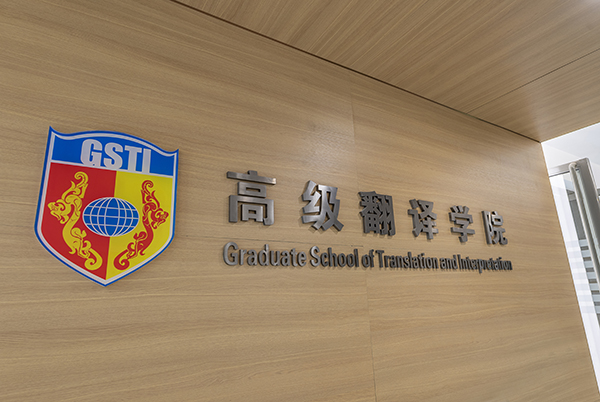- Research
- Research Centers
- Journals
- Admission
- Introduction
- Programs
- Application
- Alumni & Giving
- Alumni Club
- Giving

Founded in 1994, the Graduate School of Translation and Interpretation (GSTI) at Beijing Foreign Studies University (BFSU) is the first graduate school of translation in China. Its predecessor was the United Nations Translator and Interpreter Training Program established in 1979. Over the years, GSTI has cultivated over 2,500 professional translators and interpreters for the United Nations, other international organizations, and domestic institutions. Notable alumni include Cui Tiankai (former Chinese Ambassador to the United States), Liu Jieyi (former Permanent Representative of China to the UN and current member of the 14th National Committee of the Chinese People's Political Consultative Conference), He Yafei (former Deputy Minister of Foreign Affairs), and many other prominent diplomats, academics, and professionals.
GSTI maintains close ties with UN agencies and regularly invites senior UN translators and interpreters to give lectures. Each year, students participate in internships at organizations such as the International Labour Organization (ILO), the World Health Organization (WHO), and UN offices in New York, Geneva, and Vienna. Since 2001, more than 50 graduates have passed UN translation and interpretation exams, contributing to over 40% of the newly recruited Chinese translators/interpreters at the UN.
The school boasts a highly experienced faculty team, with nearly 30 full-time teachers who collectively provided interpretation services to over 20,000 conferences. Many have worked for organizations such as the UN, UNESCO, ILO, and WHO, and have provided interpretation services for Chinese leaders as well as foreign heads of state.
In recent years, GSTI has actively advanced its dual focus on talent cultivation and academic research, aligning with BFSU's strategy to build a world-class translation discipline. Since 2017, the school has undertaken numerous national and provincial research projects, published 100 papers in SSCI, A&HCI, and CSSCI journals, and produced around 50 monographs, translations, and textbooks. GSTI also publishes the "Interpreting and Society: An Interdisciplinary Journal" in collaboration with SAGE and hosts the Secretariat of BFSU Research Centre for Country-Specific Translation and Interpretation Capacity, which publishes translation capacity rankings worldwide.
GSTI offers master's and doctoral programs in translation studies. Master's programs include academic tracks (interpreting theory and practice, translation and intercultural studies, 3 years) and professional tracks (trilingual interpretation, international communication, and Chinese-English interpreting/translation, 2-3 years). Doctoral programs focus on translation/interpreting studies, translation technology, and practical applications, with a duration of 4-6 years. The school has around 300 enrolled graduate students, including international students, who often gain internship opportunities at international organizations. Graduates typically find employment in government ministries, foreign affairs offices, multinational corporations, major State-owned enterprises, banks, and schools.
In 2008, GSTI joined the Conférence Internationale Permanente d'Instituts Universitaires de Traducteurs et Interprètes (CIUTI), becoming the first member from China. The school also collaborates with the Middlebury Institute of International Studies at Monterey, USA, for a joint-degree program.